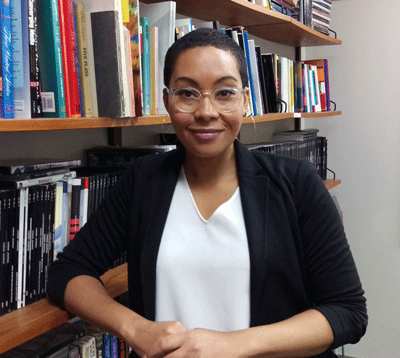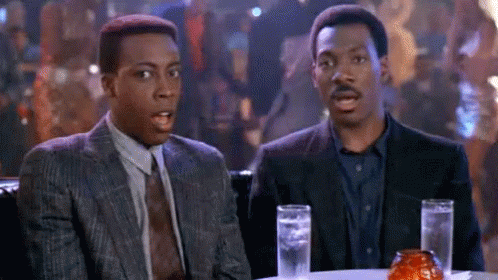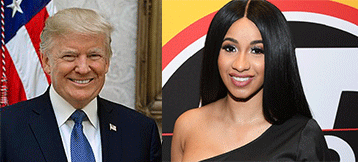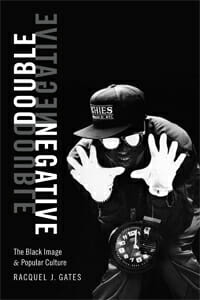
Assistant Professor Dr. Racquel Gates' new book will be launched Friday night at the Museum of the Moving Image.
In her new book, Double Negative: The Black Image and Popular Culture, Assistant Professor Dr. Racquel Gates examines the concept of disreputable media in African American popular culture. The book will be launched at the Museum of the Moving Image Friday, Sept. 28. The book builds on Gates’ research, which focuses on blackness and popular culture, with special attention to discourses of taste and quality. She has published in Film Quarterly, Television & New Media, and the anthologies Watching While Black: Centering the Television of Black Audiences and Saturday Night Live and American TV. Follow her on Twitter: @racquelgates. She discussed her new book with CSI Today.
CSI Today: What’s the central premise of the book?
Racquel Gates: The book is an intervention into existing conversations about black popular culture. Usually, and historically, discussions around black image have tended to default to this idea of, “Is this a positive or negative image of black people? Does this advance the cause of black people in America or set back the progress?” In this book I’m arguing that these images that have been dismissed because they are so-called negative images merit critical attention and actually have the power to do put forward a lot of progressive ideas about race, gender and class.
CSI Today: Can you give us an example?
Racquel Gates: For example, I have a chapter about reality TV. Because negative representations on reality TV shows are already in the metaphorical gutter of TV, they’re not beholden to respectability. There was a recent episode of Love & Hip Hop Hollywood where a woman says that she was going through her boyfriend’s bag and she found an engagement ring. She took the ring out of the bag and declared herself engaged. Her friends said, “He didn’t propose,” and she said “That’s besides the point, we’re engaged.” Most people would criticize that, saying she’s being opportunistic and not following the rules of how proposals work. I’m arguing that traditional proposals are patriarchal and don’t allow for agency for women and, historically, not for women of color. She’s calling out this tradition, taking it into her own hands, and asserting her own agency. Reality TV shows with characters acting like this are challenging the traditional way of doing things. All of the things that characterize an image as being positive are directly connected to heterosexual middle class norms, and anything that departs from those norms gets labeled deviant. But these norms don’t allow for a full range of identities and experiences. In the case of the example that I mentioned, the tradition was not designed with everyone in mind, so why not buck the tradition?
CSI Today: How do you present this to students in your classes?
Racquel Gates: When I try to explain these concepts to College of Staten Island students, especially students not familiar with debates around black representation, I’ll ask them, “How many of you can go get your haircut at Supercuts?” And many will sort of laugh and say, Dr. Gates, I can’t go there – I have this thick, curly hair: that place isn’t meant for people with this type of hair. I use that as an example of how institutions (and by extension, larger ideological and social structures) are not designed with everyone in mind. We can and should critique these institutions rather than try to find ways to fit into them.
CSI Today: What do you hope your book changes?
Racquel Gates: I would like to prompt more critical analysis of films and television shows that have been overlooked. The first chapter of the book looks at the popular film, Coming to

Eddie Murphy and Arsenio Hall in Coming to America. Thirty years after its release, people still reference the film, a reflection of its iconic status.
America, which starred Eddie Murphy and Arsenio Hall. Coming to America is an iconic film in black popular culture and its 30th anniversary was this summer – 30 years later people are still referencing this film. Yet, I had trouble finding any significant academic writing about Coming to America. What I argue in the book is that this may be because it gets dismissed as studio-produced fluff: it’s a comedy, it’s not a film focused on serious social issues. It’s not a film by a black director. It doesn’t tick any of these boxes that would garner scholarly attention. But it’s cearly iconic and has influenced and continues to influence other films and other actors. And Coming to America is a really fascinating case study of a black comedic tradition existing within white-dominated Hollywood. For example, John Landis, the director, said that he did not think of this as a black film. Eddie Murphy, the star, has explicitly said that he thinks of this as a black film. When you do a closer analysis, you can see the tension between the two positions in the film itself. The film has a conventional A plot and B plot. The A plot is a classic romance story. It’s very much in the line of classic Hollywood, about a royal going undercover to find true love. A very conventional narrative. That’s John Landis. There’s nothing particularly culturally specific in the A plot. Prince Akeem is trying to woo Lisa. Most of the comedic bits come in the B plot and the parts that Murphy improvised, which is not the main focus of the film’s narrative. If you watch the film, the B plot is where they are doing all of the culturally specific jokes and references. In a film, you’re supposed to pay more attention to the A plot rather than the B plot, but that’s not what happens in Coming to America. The B plot is what really shines in that film and becomes memorable: if you ask people to quote something from the film, it’s always something from the B plot. The catch is that, the spaces where the references occur are often dismissed from critical attention, too.
For example, Kandi Burruss, one of the cast members of The Real Housewives of Atlanta, designed her wedding on the failed engagement scene that comes at the very beginning of Coming to America, rather than on the climactic wedding scene at the end. John Landis makes this case for this color blind romantic comedy but those don’t seem to be the moments that have stuck in anyone’s memory. The wedding should be the big moment, but that doesn’t seem to be the moment that people remember from that film. The things that resonate are the black-specific things, not the color-blind Hollywood things in the film. A lot of critics have said Coming to America is a studio-produced film by a white director – therefore it’s not as significant as Do the Right Thing by Spike Lee or Hollywood Shuffle by Robert Townsend. Yet, what I’m arguing in the book is that Coming to America should make us rethink how we define a “black film,” and moreover, how we determine which black films matter.
CSI Today: And that’s the case with TV shows as well?
Racquel Gates: Yes. Consider Ryan Murphy’s Pose. There was a lot of excitement about Pose because it showed so many representations of queer people of color, and that excitement is totally warranted. But prior to that show’s premier, Love & Hip Hop has had lots of characters who are queer people of color. But it’s dismissed as a trashy reality TV show.
CSI Today: Why are these shows important?

Are U.S. President Donald J. Trump and Bronx-born rapper Cardi B the two most important people in America?
Racquel Gates: They’re important because they are able to challenge these norms, precisely because they’re trashy, not in spite of it. If you’re concerned about winning an Emmy or an Oscar, there are certain conventions of “quality” that you will follow because you need to hit those marks with critics, executives, and audiences. Those conventions, however, have not historically centered all types of people. For instance, many network executives still don’t believe that a black cast show can win large numbers of viewers, which is why they only want diversity in limited doses. Yet, if those conventions of “quality” are never your concern, then you can highlight storylines, concerns, and situations that present a more complicated view of life and experience.
TV today is following a narrow-cast model rather than a broadcast model – shows target niche demographics – that’s part of it. I think you’re seeing the impact of some of these reality shows on mainstream shows as well, such as the impact of VH1 reality TV shows on something like Empire, Fox’s show. Empire is a night-time predominantly black cast soap opera where the unquestioned lead and star is a black woman who sometimes acts outrageously. She’s not a “respectable” character. I find it interesting that that happens at the same time as the soaring popularity of Love & Hip Hop, a night-time soap opera-inflected drama featuring women of color acting in ways that are sometimes outrageous. Love & Hip Hop demonstrated to network executives that there is a market for those types of programs.
CSI Today: So, do these shows have a value that we’re missing?
Racquel Gates: I do think people are missing an opportunity by dismissing these types of films and television shows, especially the reality shows. What you get in these reality shows are women questioning traditional definitions of family, depictions of fluid gender identity, men pushing back against conventional ideas of what it means to be a man. These are conversations that are happening today nationally in the public sphere. On these shows they’ve been having those conversations before “me too” was a hashtag and before many of the conversations about gender identity made it into mainstream TV shows.
“I do think people are missing an opportunity by dismissing these types of films and television shows, especially the reality shows.”
CSI Today: It bears pointing out that the current president is a reality TV star…
Racquel Gates: If there ever was an argument in favor of why we need to understand how reality TV functions and what its appeal is, that is probably it. Leading up to the 2016 election, many journalists were analyzing the political race through traditional political analysis. If you had watched the debates through the lens of what makes good reality TV, then you came away with a very different understanding of what happened; that is, if you considered who was doing a better job of appealing to their targeted audience. Hillary Clinton was going broad, she was trying to make these reasoned arguments and statements about policy that appealed to the widest number of people possible. Donald Trump was sending a very specific targeted message meant to resonate with his core group of supporters, and that is absolutely a reality TV characteristic: knowing what appeals to your niche and speaking directly to their emotions. Many pundits thought that he was losing in the debates because he wasn’t presenting policy positions or putting forward a broad message to touch everybody. That’s political analysis, though. Media scholars knew differently.
CSI Today: What should we take away from that?
Racquel Gates: I taught a reality TV class last year and on the first day I told the class that the two most important people in this country right now are Donald Trump and Cardi B, and that you need to understand reality TV to understand why that is. It doesn’t matter if you like it, but you do need to recognize that it’s important and complex. This is especially crucial when you realize that these things — reality TV and other elements I discuss in the book — they have a significant impact on other films and TV shows, industry logic and what gets greenlit. And moreover, it reveals something about the aspects of human life and experience that may be too messy and complicated to make it into “quality” or “positive” representations.












